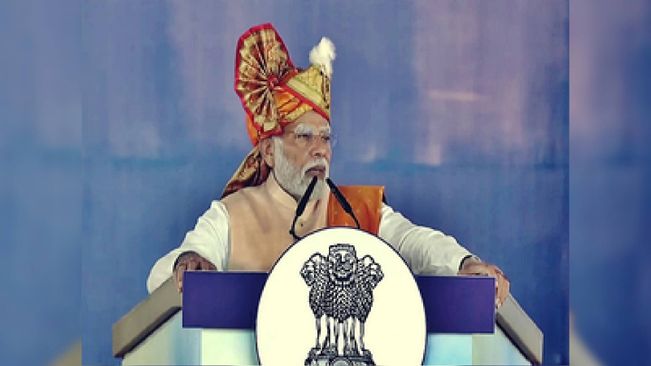Nine out of a total of 10 stations on the section will be underground. Mumbai Metro Line 3 is a key public transport project that will improve commuting between Mumbai city and Suburbs. Fully operational line-3 is expected to cater to about 12 lakh passengers daily. The project has received funding from Japan International Cooperation Agency (JICA).
An official said that the Project aims to cope with the increase of traffic demand in Mumbai by expanding the mass rapid transportation system, thereby promoting regional economic development and improving the urban environment, through mitigation of traffic jams and decrease in pollution caused by increasing motor vehicles. Nearly 17 lakh commuters will travel on this metro.
Mumbai Metro Line 3 is the first underground metro line in Mumbai which will connect Cuffe Parade business district in south Mumbai to SEEPZ in the north-central via BKC station and Chhatrapati Shivaji Maharaj International Airport station, with 26 underground stations and one at-grade station.
With the operation of the Mumbai Metro Line 3, the journey from the Domestic Airport station to Cuffe Parade station will take about 45 minutes, while normally it would take more than 2 hours by car during peak traffic time.
The Mumbai Metro Line 3 project introduces women-only cars and priority seats for those who need assistance, and installs surveillance cameras in station buildings and trains, ensuring a safe journey to the passengers. Also, the station buildings and cars are designed with consideration for elderly and disabled people.
The phase II of the Mumbai Metro Line 3 will start by March, Chief Minister Eknath Shinde said.
Besides, the Prime Minister also laid the foundation of Thane Integral Ring Metro Rail Project to be constructed at the cost of around Rs 12,200 crore.
The total length of the project is 29 km with 20 elevated and 2 underground stations. This ambitious infrastructure project is a key initiative to address the growing transportation needs of Thane, a major industrial and commercial hub in Maharashtra. The state cabinet on Monday gave approval for its revised cost.
Incidentally, Thane is CM Eknath Shinde's hometown and the traditional bastion of the Shiv Sena.
Maha Metro will execute the project, along with civil, electromechanical, other associated facilities, works and related assets. Maha-Metro has already started the pre-bid activities and preparation of Tender documents. The contracts will be floated immediately for bidding.
The state government has directed the Thane Municipal Corporation to contribute Rs 5,078.04 crore towards the state government's equity, expenses for land acquisition, rehabilitation and resettlement. The state government will provide an interest-free secondary loan of Rs 969.75 crore.
The project is likely to be completed by 2029. More importantly, the Metro line would benefit thousands of daily commuters, especially students and those commuting every day to offices and work areas by providing faster and more economical transport options.
The project would result in total daily ridership on the metro corridors for the years 2029, 2035 and 2045 by 6.47 lakh, 7.61 lakh and 8.72 lakh passengers, respectively.
The Prime Minister laid the foundation stone of Elevated Eastern Freeway Extension from Chheda Nagar to Anand Nagar, Thane worth around Rs 3,310 crore.
The project will provide seamless connectivity from South Mumbai to Thane.
Further, he laid the foundation stone of Phase-1 of Navi Mumbai Airport Influence Notified Area (NAINA) project worth around Rs 2,550 crore.
The project comprises construction of major arterial roads, bridges, flyovers, underpasses and integrated utility infrastructure.
The Prime Minister laid the foundation stone of Thane Municipal Corporation to be constructed at a cost of around Rs 700 crore. The high rise administrative building of Thane Municipal Corporation will provide benefits to citizens of Thane by accommodating most Municipal offices at a centrally located building.
--IANS
Read More National News















